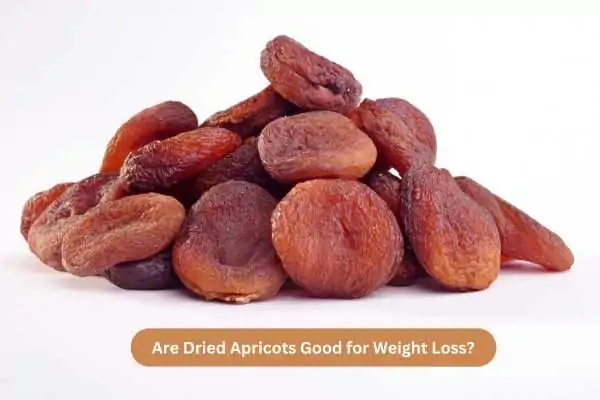Dried apricots have long been a convenient, naturally sweet snack enjoyed across the UK. They’re portable, shelf-stable, and easy to add to breakfasts, salads, or even savoury dishes. But when it comes to weight management, many people wonder—are dried apricots good for weight loss?

The short answer is: yes, they can be, when eaten in moderation and as part of a balanced diet. Let’s take a closer look at why dried apricots might be a smart choice for those aiming to shed pounds or maintain a healthy weight.
Nutritional Profile of Dried Apricots
Understanding the nutritional content of dried apricots helps explain their role in weight management.
A 30g serving (about 4–5 dried apricot halves) typically contains:
-
Calories: ~70 kcal
-
Carbohydrates: ~17g
-
Sugars: ~15g (naturally occurring)
-
Fibre: ~2g
-
Protein: ~0.7g
-
Fat: <0.5g
-
Vitamins & Minerals: High in vitamin A, potassium, and iron
The key here is their nutrient density. You get a good supply of vitamins, minerals, and fibre for relatively few calories, making them a nutrient-rich snack.
How Dried Apricots May Support Weight Loss
1. Rich in Fibre
Fibre is essential for weight management because it promotes satiety—keeping you feeling fuller for longer. The soluble fibre in dried apricots slows digestion, stabilises blood sugar levels, and reduces the urge to snack on high-calorie foods later.
2. Low in Fat
With almost no fat content, dried apricots provide a sweet snack without the calorie-dense fats found in other treats. This makes them a lighter choice for satisfying sugar cravings.
3. Natural Sweetness
One of the challenges in weight loss is cutting down on refined sugar. Dried apricots offer natural sweetness without added refined sugars (as long as you choose unsweetened varieties). They can replace high-calorie desserts or confectionery, helping reduce overall sugar intake.
4. Nutrient Boost
When losing weight, it’s important to maintain good nutrition. The vitamin A supports eye health and immunity, potassium helps regulate fluid balance and muscle function, and iron supports energy levels—important when you’re increasing physical activity.
Portion Control: The Key to Success
Despite their benefits, dried apricots are calorie-dense compared to fresh fruit due to their reduced water content. Overeating can quickly add extra calories that might hinder weight loss progress.
Recommended portion: About 30g per day (roughly a small handful). This amount offers nutritional benefits without excessive calories or sugar.
A good strategy is to pre-portion your dried apricots into small containers or snack bags so you’re less likely to overindulge.
When to Eat Dried Apricots for Weight Loss
-
Mid-Morning Snack: Keeps hunger at bay until lunch without spiking blood sugar.
-
Post-Workout Snack: Pair with a handful of nuts for a balance of carbs, protein, and healthy fats to aid recovery.
-
In Breakfasts: Add to porridge, overnight oats, or low-fat yoghurt for a satisfying start to the day.
Avoid eating them late at night if you’re sensitive to sugar intake before bed.
Choosing the Right Dried Apricots
Not all dried apricots are created equal. For the best weight loss benefits, opt for:
-
Unsweetened varieties – Avoid added sugar or syrups.
-
Sulphur-free options – For those sensitive to preservatives.
-
Organic sources – Often better quality and richer flavour.
You can find these at health food shops, supermarkets, and online UK retailers.
Combining Dried Apricots with Other Foods
Pairing dried apricots with protein or healthy fats can make them even more effective for weight management. The protein and fat slow digestion, keeping you full for longer. Examples include:
-
Dried apricots + almonds or walnuts
-
Dried apricots + Greek yoghurt
-
Dried apricots + cottage cheese
This combination reduces the likelihood of blood sugar spikes, which can trigger cravings.
Potential Downsides to Consider
While dried apricots have many benefits, there are a few points to keep in mind:
-
Calorie Density: It’s easy to eat too many without realising, which can add extra calories.
-
Sugar Content: Even though it’s natural, it can still impact blood sugar if eaten in excess.
-
Digestive Effects: High fibre can cause bloating in some people if consumed in large quantities.
Being mindful of portions is the best way to avoid these drawbacks.
Final Thoughts
So, are dried apricots good for weight loss? Yes—when enjoyed in sensible portions and as part of a balanced diet, they can help satisfy sweet cravings, provide essential nutrients, and keep you fuller for longer.
Their convenience, long shelf life, and versatility make them a great snack choice for those on the go. Just remember, moderation is key. Pair them with protein or healthy fats for the best results, and opt for unsweetened varieties to keep your diet on track.

